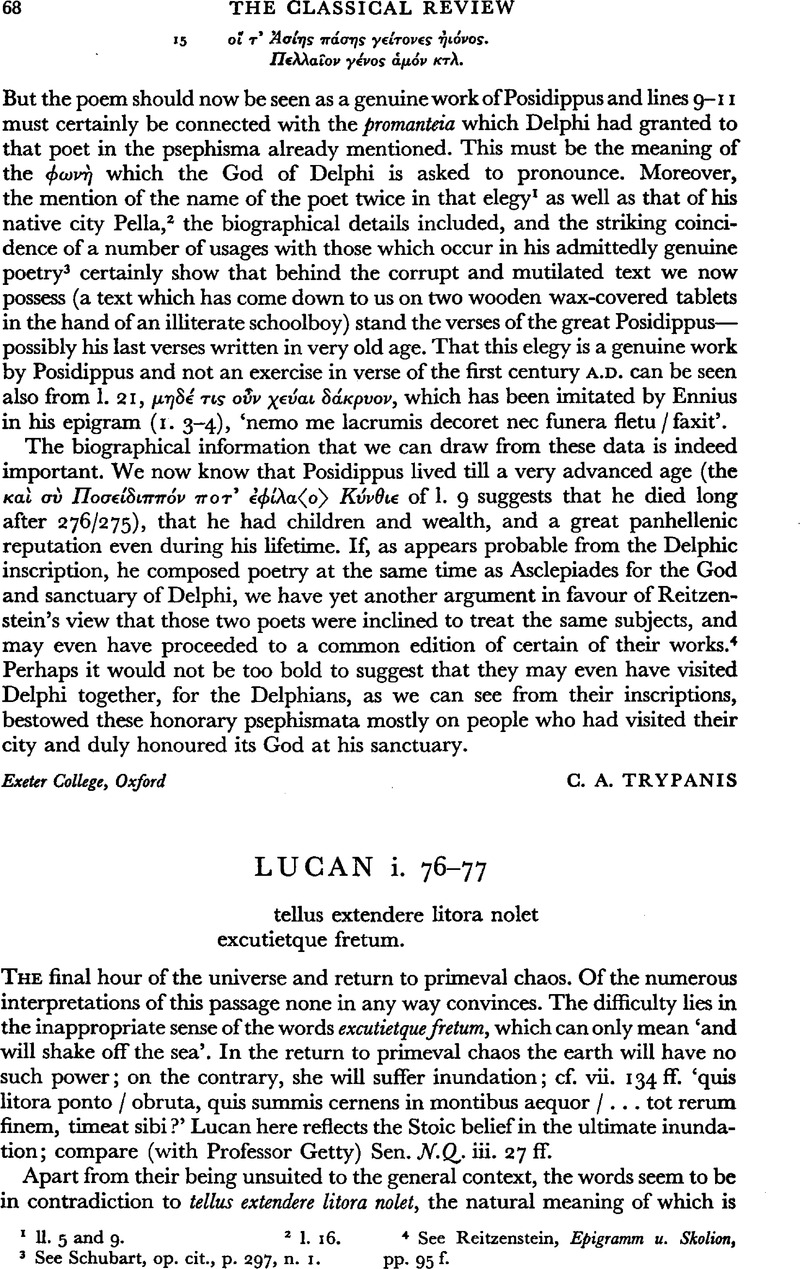No CrossRef data available.
Published online by Cambridge University Press: 13 February 2009

page 68 note 1 ll. 5 and 9.
page 68 note 2 l. 16.
page 68 note 3 See Schubart, op. cit., p. 297, n. 1.
page 68 note 4 See Reitzenstein, , Epigramm u. Skolion, pp. 95 f.Google Scholar
page 69 note 1 For the use of extendere compare ii. 434 ‘(Appenninus) extendit … suas in templa Lacinia rapes’, Ov. Met. i. 43 ‘iussit et extendi campos, subsidere ualles’.
page 69 note 2 Bentley compares Luc. iv. 429 ‘iamque relabenti crescebant litora ponto’.
page 69 note 3 Who translates ‘and earth, refusing to spread her shores out flat, will shake off the ocean’, and explains ‘i.e. she will heave them up’. Francken, though he interprets differently, also sees a reference to the upsurge of mountains and refers to Sen. Dial. vi. 26. 6 ‘(uetustas) totos supprimet montes et alibi rupes in altum nouas exprimet; maria sorbebit, flumina auertet’; but see below.
page 69 note 4 He renders extendere l. as ‘tenir les rivages étendus autour des mers’ and explains that ‘d'après cette description, le bouleversement sera causé par la tentative de chaque élément de se substituer à celui qui lui est opposé: … la terre secouera la mer, comme un vêtement dont on se débarrasse’.
page 69 note 5 No less strangely ‘la terre ne voudra plus garder la ligne de ses rivages et chassera la mer’.
page 69 note 6 It is to be noted that in Sen. Dial. vi. 26. 6 (quoted above) the earth will do anything but shake off the sea, as the succeeding words make clear: ‘inundationibus quicquid habitatur obducet necabitque omne animal orbe submerso’.
page 69 note 7 An example of the normal usage is iv. 433 ‘noluit Illyricae custos Octauius undae / confestim temptare ratem, celeresque Carinas / continuit’ (‘but held back’).
page 69 note 8 What Lucan wrote was Latin and the above text is not Latin for ‘the land will refuse to stretch out its coast-line, the restraint of which the sea will throw off’ (so Professor Getty).